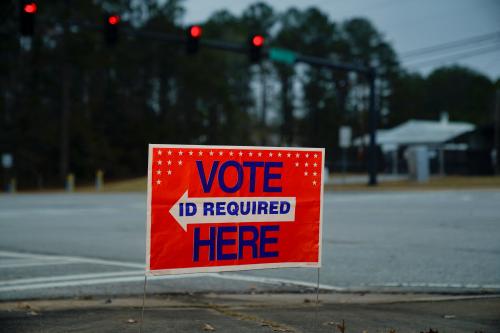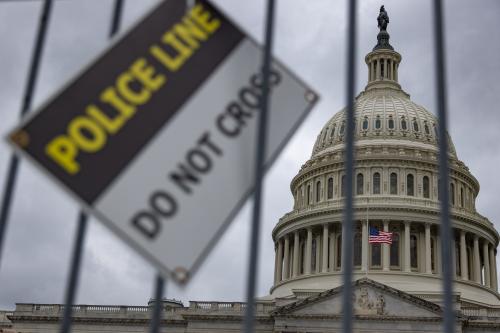Ninety percent of Indonesia’s voting age population is expected to vote in the general election next Monday. That’s 130 million voters in a country of 230 million people. In the U.S. presidential election in 2000, only fifty percent of the voting age population showed up at the polls—105 million voters in a country of 300 million people.
That’s not all. Unlike past elections in Indonesia that featured a dominant government party and a couple of weak, government-approved opponents, twenty-four parties will be competing for votes, many of them newly formed since the last election.
By these measures, Indonesia looks like a healthier democracy than the USA.
Why then is so little attention being given to the political transition underway in Indonesia? Because it is overshadowed by the recent elections in Malaysia and Taiwan, and by the political turmoil in Korea? Because good news makes boring headlines?
Most of the recent news from Indonesia that captured headlines has been negative: terrorist attacks in Bali and in Jakarta, American teachers murdered in Papua, martial law in Aceh to crush a secessionist movement. Organizations that monitor corruption, human rights abuses, and environmental loss have rated Indonesia among the worst offenders.
These negative stories, however, have obscured the progress Indonesia has made in recovering from the financial crisis that erupted in 1997 and building a stronger constitutional framework for good governance. This positive news should be given more weight for two reasons. Not only is Indonesia the fourth most populous country in the world after China, India, and the United States; it is also the largest Muslim country. As many Muslims live in Indonesia as in Egypt, Iran, Iraq, and Saudi Arabia combined.
Following a people’s revolt that ended thirty years of authoritarian rule by General Suharto, Indonesia in 1999 became the largest Muslim country with a democratically-elected government. Unfortunately, the new government was a disappointment. President Wahid was forced to resign in mid-2001, less than two years into a 5-year term, because of his erratic style of governance.
Wahid’s vice president, Megawati Sukarnoputri, is the leader of the party that won the most votes in 1999, but she had been outmaneuvered in the parliamentary balloting for president. After being sworn in as president, she installed a cabinet that established a clear sense of direction and began moving Indonesia forward, albeit at a slow pace. Her economic team has outperformed expectations by reducing inflation from the mid-teens to five percent and by restoring the country’s creditworthiness. Yet economic growth has lagged behind rates achieved in the past and unemployment has been growing.
The party ranking that results from the parliamentary elections on April 5 will be a major factor in determining the president-vice president tickets that compete in the presidential election on July 5. This will be the first time ever that Indonesians elect their president directly—another area where Indonesia’s democracy compares favorably with America’s. A runoff will be held on September 20 if none of the tickets win a majority in the first round.
Megawati as president has been aloof. Her popularity has plummeted and a first-round victory appears to be out of reach. None of her major challengers, however, is offering a more ambitious agenda. The most that can be expected from the new government that will take office on October 20 is another five years of slow progress.
Indonesia’s experience illustrates how difficult it is to improve governance in a country with a long history of authoritarian rule, even with a new government that is freely elected. Yet Indonesia’s progress since 1998 also represents a great opportunity to advance global security and prosperity.
The prospects for establishing good governance in the near term are probably better in Indonesia than in the Islamic heartland in the Middle East. Good governance cannot be imported; it can only endure if it grows from within, as is happening now in Indonesia. If Indonesia is able to join Malaysia as a prosperous Muslim democracy, these two countries will provide powerful models for better governance in the Middle East—models that could have more of an impact than billions of dollars of U.S. assistance and years of military engagement.
A smooth political transition cannot be taken for granted, however. Indonesia could stumble and become a source of instability in Southeast Asia, placing heavy demands on Australia, Japan, Europe, and the United States to deal with problems ranging from a flood of economic refugees to terrorism. If the transition does occur without a major hitch, Americans should look for tangible ways to acknowledge this substantial accomplishment and reinforce their support for Indonesia’s slow march toward a just and prosperous society.



Commentary
Op-edIndonesia in Transition
April 1, 2004